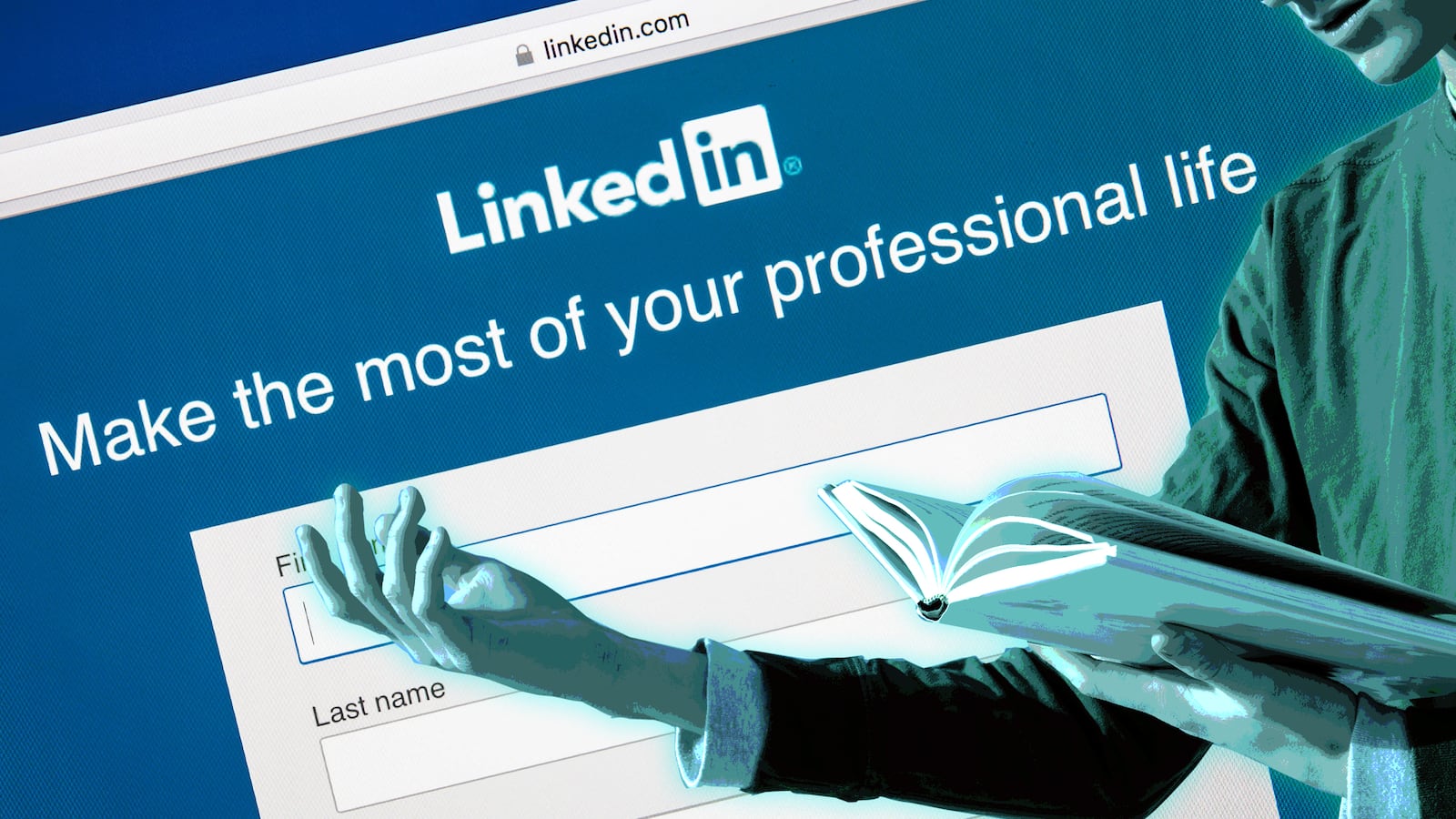It starts out like this: I was homeless. I was fired yesterday. I was walking home. I took an Uber. Someone stopped me on the street. My boss told me not to take a chance on anyone over 50, but I hired him anyway. It was Elon Musk.
LinkedIn has become overrun with these types of inspirational tales posted as long status updates. They’re characterized by their short sentences and read like E.E. Cummings poems recited from memory by Tony Robbins.
They’re usually between 15 to 25 lines long, always double spaced. They start with a hook in the first couple sentences that entices the reader to click the “see more” link that’s displayed on LinkedIn posts that are longer than three lines.
Some refer to this type of post as “the LinkedIn haiku” others call it “broetry” and it has completely cannibalized the LinkedIn newsfeed.
Broetry was initially popularized by the type of growth markers and entrepreneurs who make up the majority of power publishers on the platform. Most users report seeing the trend begin sometime around September or October.
But, according to several heavy LinkedIn users, in recent weeks the format has become so dominant that even average middle managers in Ohio are posting these strange status updates.
Ben Lee, a startup entrepreneur in Los Angeles, said he began posting broetry on LinkedIn back in September. He now dedicates time every Sunday to drafting his prose.
“I started noticing the trend and the writing style and how well it did in LinkedIn’s algorithm,” he said, noting that his most popular story got over 5.5 million views.
He estimates that an average broem garners him between 200,000 to 500,000 views, miles above any type of content he posted before.
“I try to capture something that’s happened in recent months and I try to make it relatable, maybe a difficult time at work, or something bad that happened, or the stress of being an entrepreneur,” he said. “It’s my weekly reality show, where I get to share the triumphs and difficulties.”
Opening up about personal triumphs or difficulties may sound strange on a platform specifically designed to help users curate a more professional persona, but broets say that it’s actually the personal nature of these stories that helps them go viral.
“People love to hear about the roller coaster ride,” said Patrick Kennedy, a business development director in New York. “For business, that roller coaster is all important. Everyone has one whether you’re an entrepreneur or worked Fortune 500 your whole life.”
Kennedy says that opening himself up and talking more about his struggles—and overcoming them—has led to new connections and sales contacts he may have never previously made.
“In the past I would not share personal stories and people in my network wouldn’t know these personal stories about me,” he said. “They’d know ‘Business Patrick.’ Posting like this has made me feel a lot more open. Then, interacting with the comments and other people’s posts opens dialogues up with strangers who can turn into business contacts or prospects.”
The formatting of these stories is just as critical as the content within them. Much like how Upworthy’s signature headline style exploited Facebook’s algorithm back in 2013, broetry is perfectly formatted to go viral on LinkedIn.
“These posts are pretty much like Viral Nova or Upworthy for LinkedIn,” Sam Parr, founder of The Hustle, said.
The company did announce back in January that it had restructured the website to “put conversations and content at the center.” LinkedIn did not respond to comment for this story.
LinkedIn is hungry for content. Unlike Twitter users who post frequently throughout the day or Facebook users, who turned oversharing into an art form, most people don’t post all that frequently on LinkedIn, according to users who spend the majority of their time on the platform.
“There’s a huge disconnect in terms of supply and demand when it comes to content on LinkedIn,” Parr said. “LinkedIn literally needs a higher supply of content for the eyeballs they have and so they’ve made it so that if you post a status, you get a disproportionate amount of engagement. There’s just not that much personal content on there.”
Parr says he believes this tendency to over-index status updates has helped fuel the broetry trend.
Lee agrees. He said he has personally noticed that his video and photo posts only garner a fraction of the views his broetry gets and “that delta is significant.”
The ability to skim broetry without missing much of anything also perpetuates its success.
Lee said these days he doesn’t think people have the time or the energy to sit down and watch or read entire Tony Robbins-style presentations. They don’t have five hours to dedicate to a seminar. They want their uplifting lessons now, in line at the grocery store, so they can move on.
Because of its spacing and lack of large blocks of text, broetry is incredibly easy to digest.
“The style is optimized for mobile,” Kennedy said.
According to LinkedIn’s own data, nearly 60 percent of its user base accesses the platform via mobile. Broetry simply fits.
As quickly as broetry has risen, it will almost certainly fall fast. Many users have already begun to complain that their previously useful feed of friends’ professional news and updates has been transformed to what can feel like a cut-rate Rupi Kaur self-help book.
Parr became so sick of the format that he finally decided to parody it and was disheartened to realize that many people on LinkedIn couldn’t even tell the difference.
“I’ve done a bunch of joke ones,” he said, explaining that he has parodied the tales of Mario and Luigi, Happy Gilmore, and Charlie and the Chocolate factory, all in broetry form.
“Most of the stories out there are just so ridiculous,” Parr said. “They’re like, ‘The candidate walked in, his shirt was dirty, but we hired him anyway, his name? Barack Obama. We didn’t want him, but he proved himself. 20 years later, he’s running Tesla.”
Parr begins his broem about Mario and Luigi:
“It was summer of 2006 and I felt like a total failure. My brother and I had just taken over our father’s plumbing business and it was days from going down the drain.We made a bunch of beginners mistakes, causing us to lose a few clients. But we weren’t ready to give up.We couldn’t let our family business go down like this.”
“Some people realize I’m joking, some don’t,” he said. “People have asked me if I need help.”
Parr concluded his Mario broem with a sentiment most people should pick up on: “In the end me and my Italian brother won,” he said.
An entrepreneur quickly responded in the comments.
“I LOVE this story. ‘Massive Success’ always seems to show up when you push on a little further from ‘all is lost.’”






